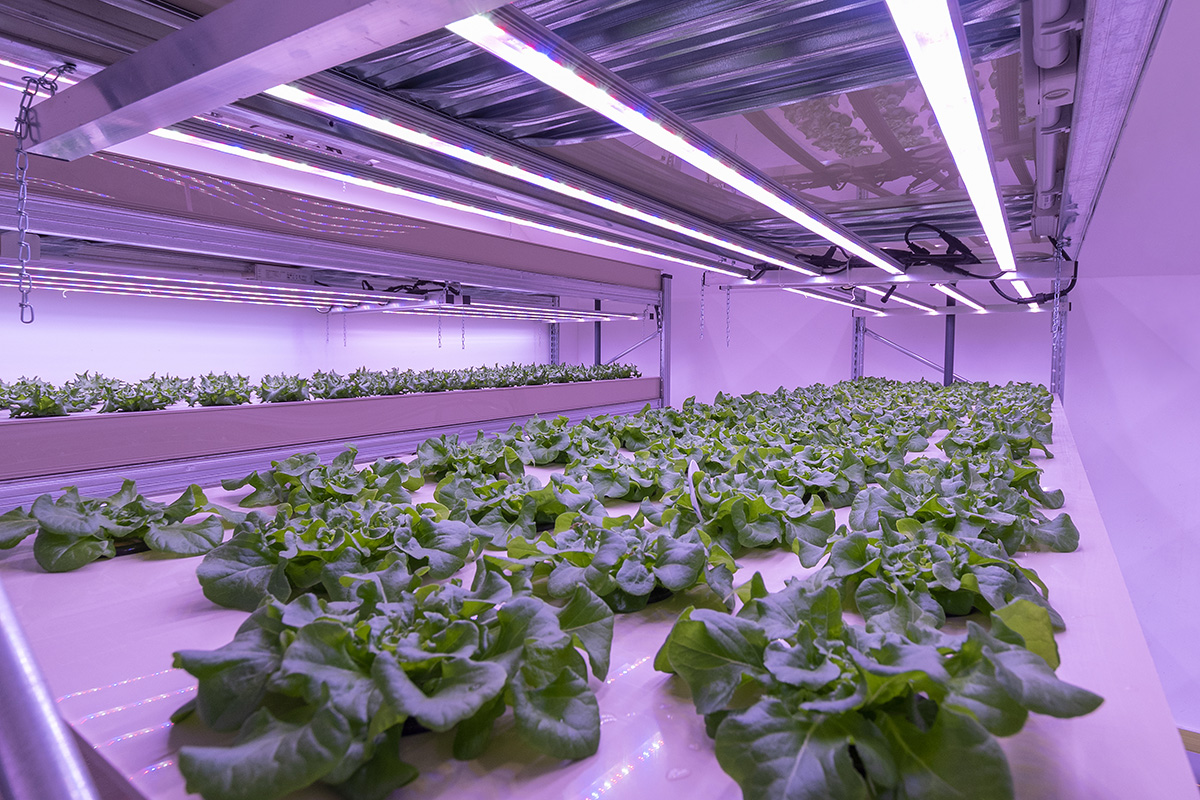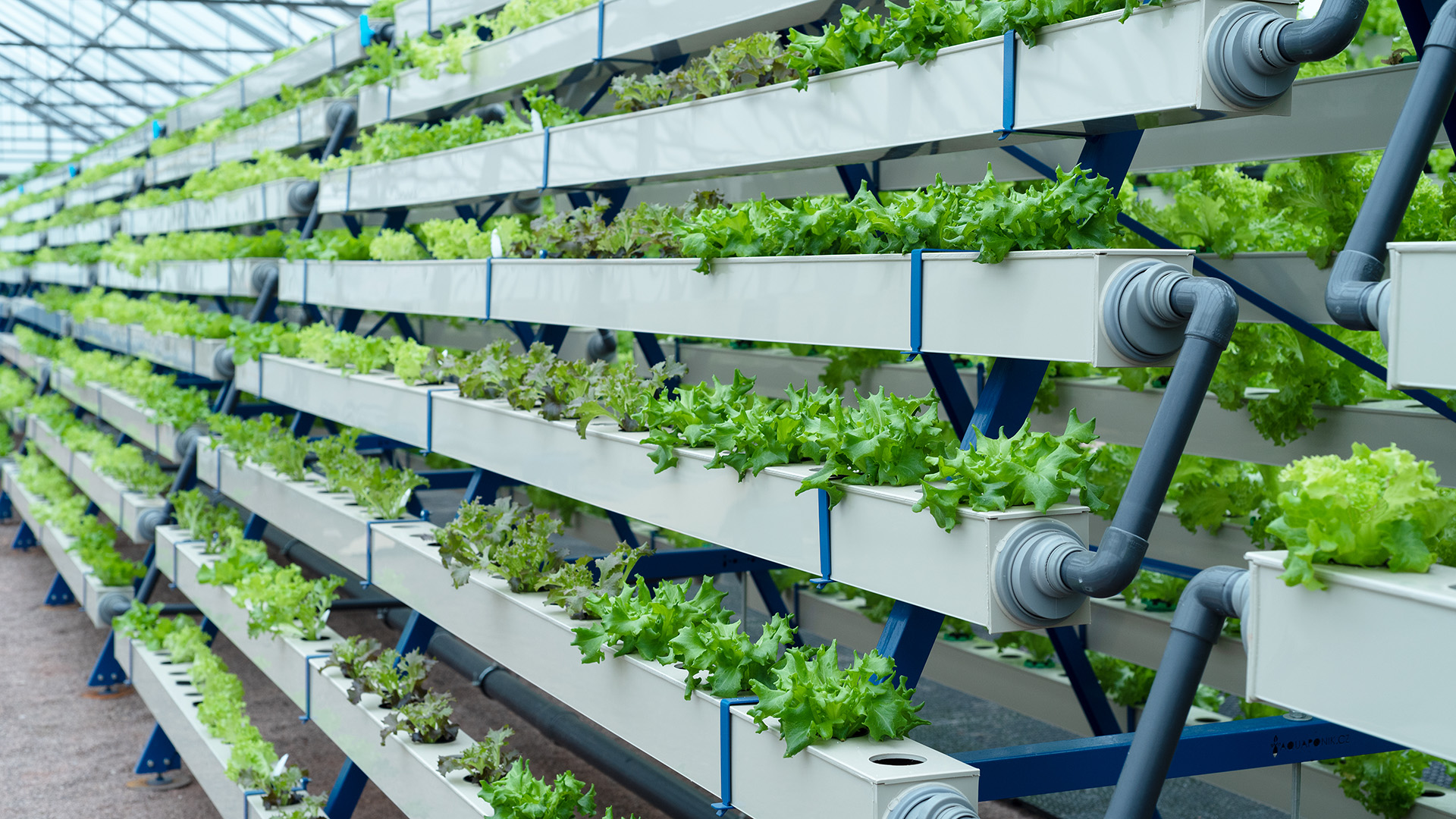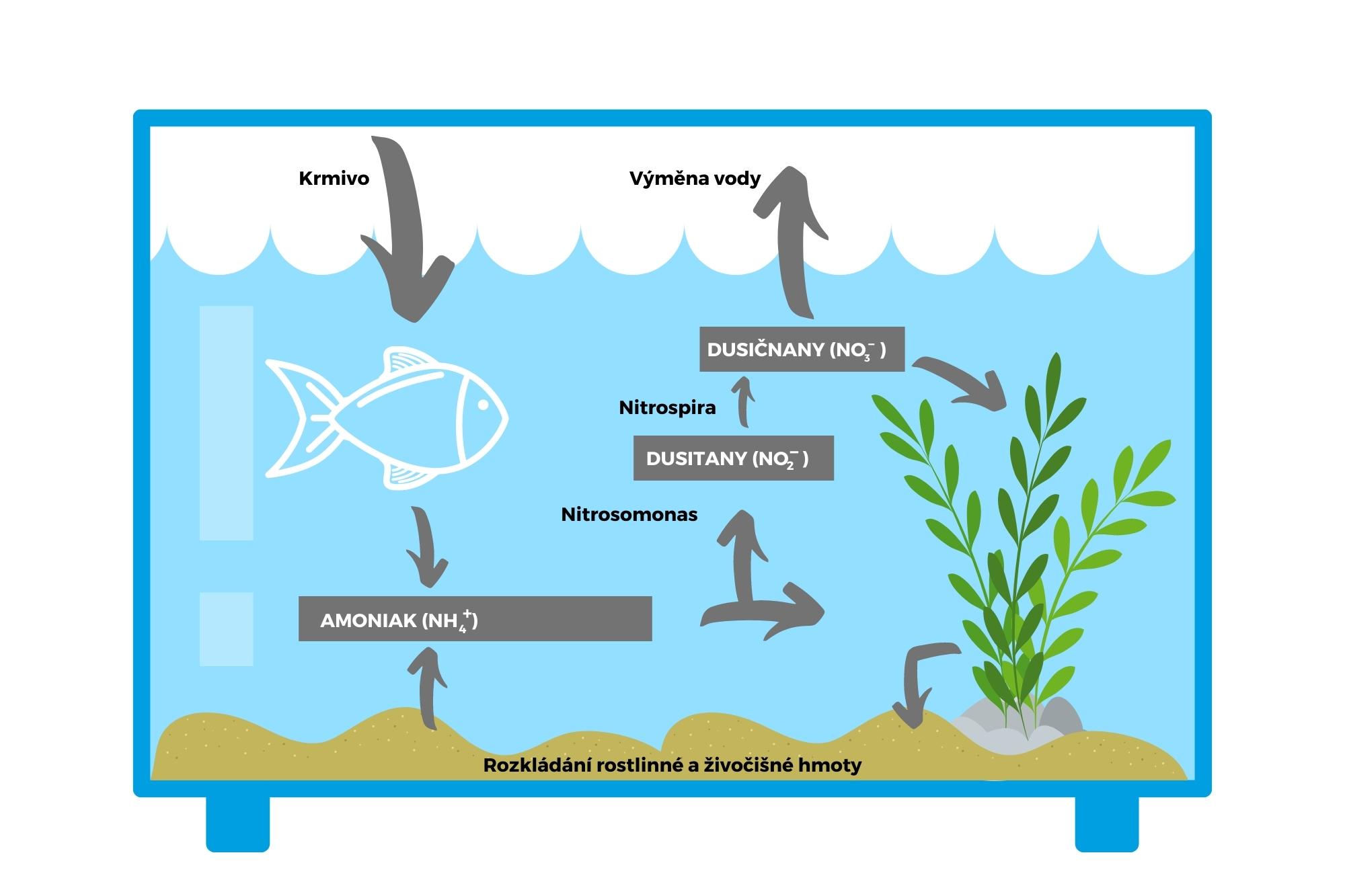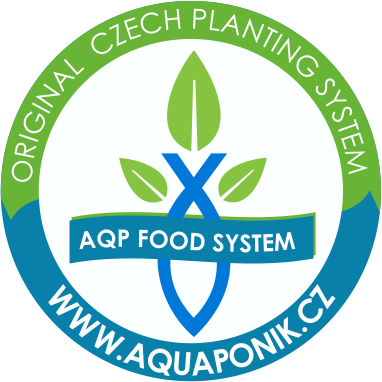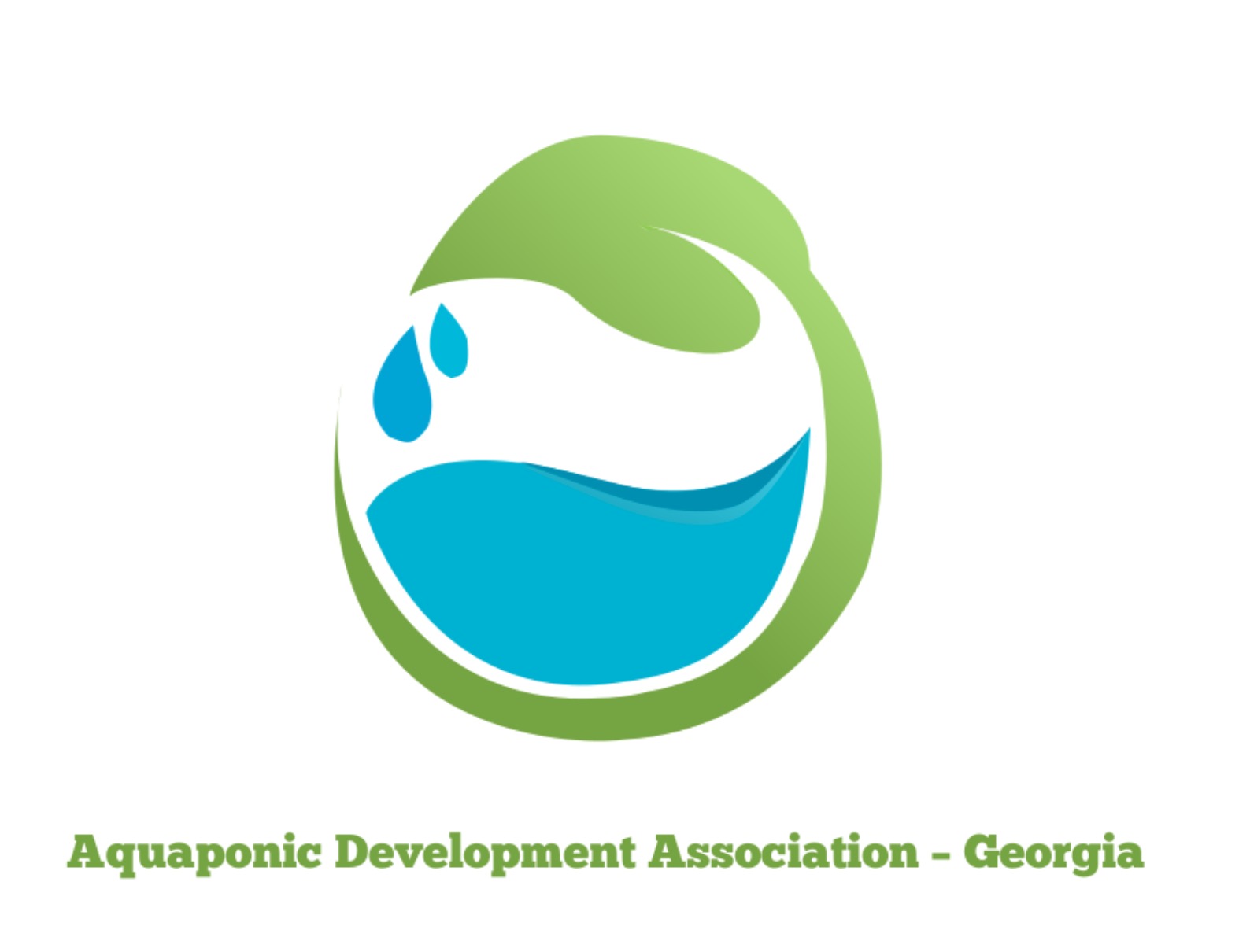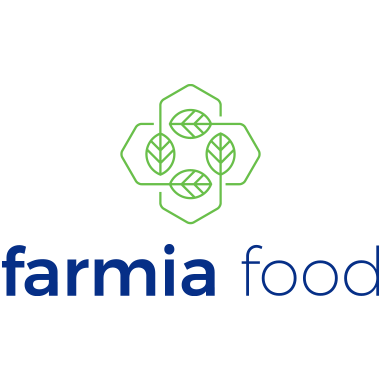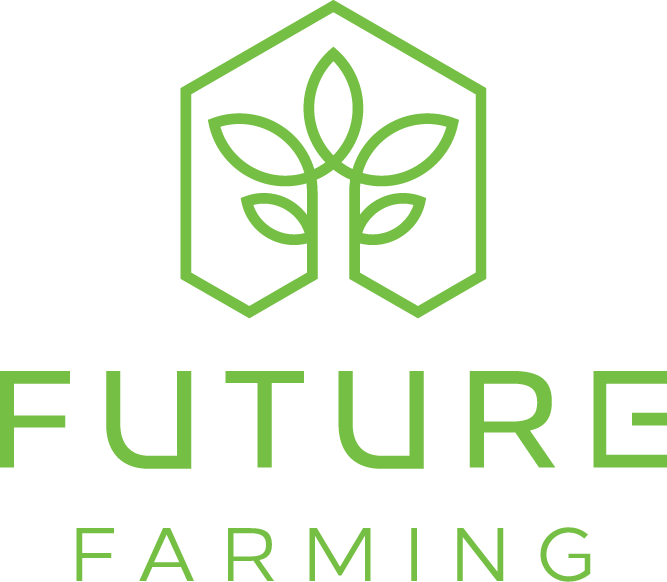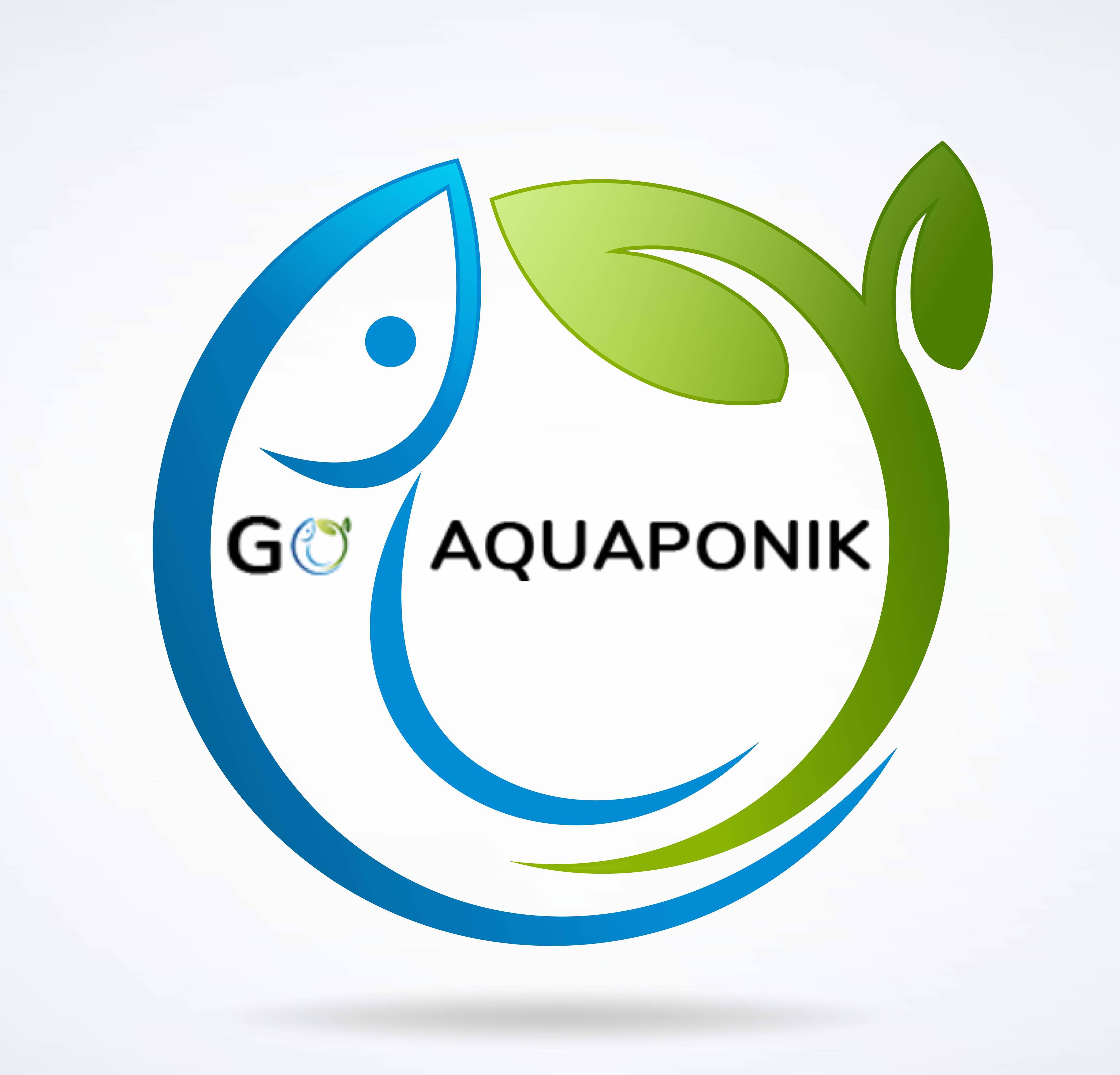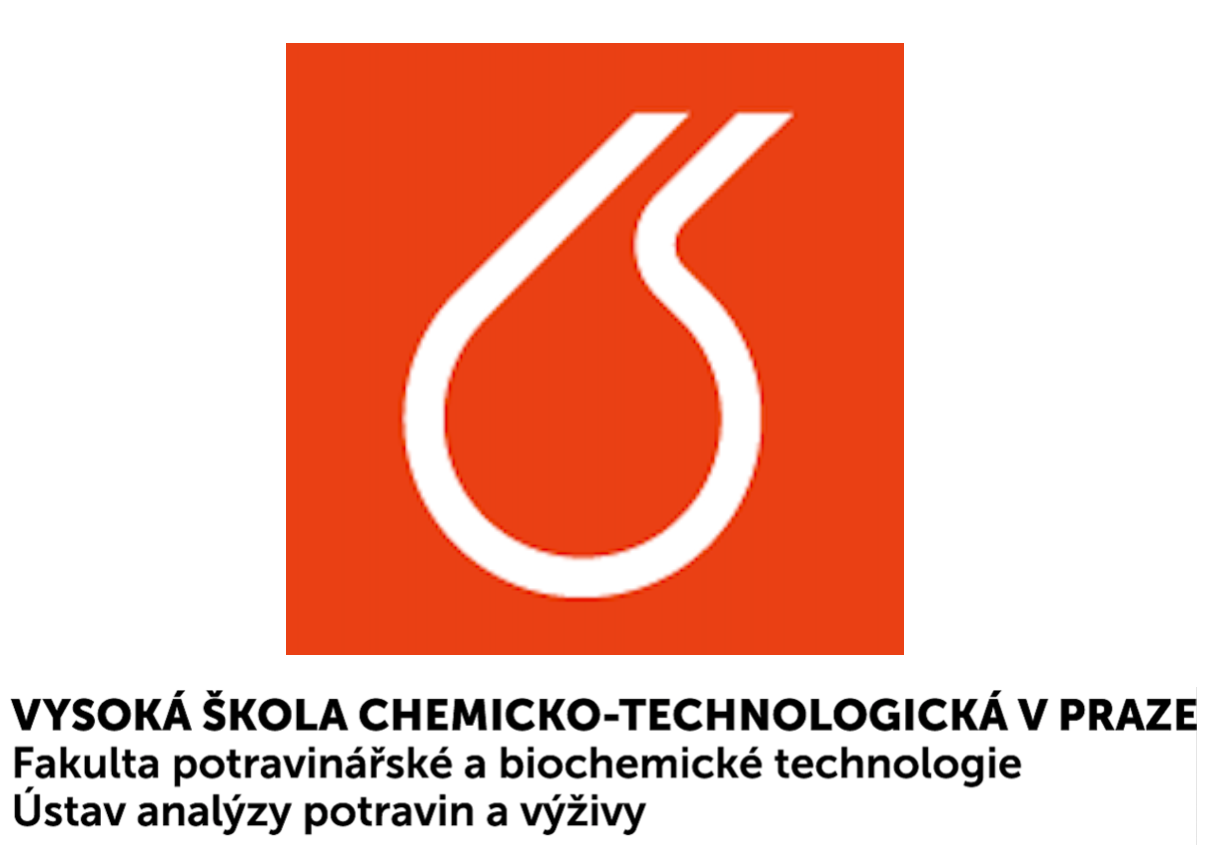What exactly is sustainability?
In a broader context, sustainability is the endurance of systems and processes. In agriculture, to which aquaponics belongs, it’s the ability of the farm to endlessly produce without long-term damage to the soil and ecosystem. This form of farming cooperates with the cycle of soil nutrients:
- The soil feeds the plants → the plants feed the animals → the animal and plant remains feed the soil → the soil feeds more plants.
However, in this elegant and seemingly endless cycle, a number of factors interfere, that to a larger or smaller extent, can endanger the whole process. In particular, unfavorable climatic conditions or diminishing soil.
There are a lot of existing measurements for sustainable farming, for example the effect on the environment and on the quality of the produced food – and thus on human health. Aquaponics overcomes the negative aspects and fulfills all the measurable metrics.
1. 95% water saving
Compared to conventional agriculture, aquaponics has minimal demands on water. The technical solutions of the farms eliminate the need to water. No water soaks into the surrounding environment or drains away off the surface; the only “loss” is evaporation during recirculation.
2. Zero usage of soil
Farming land is endangered. Its amount is quickly diminishing, whether it’s due to housing development, erosion, or contamination. Aquaponics doesn’t need soil at all and the farms are never built on arable land. For these reasons, aquaponics:
- doesn’t cause a decrease in farming land,
- isn’t dependent on the availability of a particular amount of quality soil.
Aquaponics farms with an area of 1,000 m², built in ruined or barren areas, produce the same amount of vegetables as 18,000 m² of field growing. One such farm saves 1.8 hectares of cultivatable soil.
3. 94% lower demands on space
The last paragraph shows that aquaponics farms can work without problems in areas with a shortage of farming land; in places where nothing would grow anyways (e.g., in big cities, in the desert, in jagged terrain). Even in these places, aquaponics doesn’t make large demands on space. Thanks to the vertical growing method of aquaponics, there are larger yields per unit of area than in conventional agriculture, which is important to know in comparison with the above mentioned.
4. Top quality of food
Aquaponics doesn’t use any agrochemicals. A natural solution is used as fertilizer, which is provided by the bacteria in the fish’s intestine. This nutritious solution contains more than 50 elements and organic compounds, which supply the plants with a rich variety of nutrients. For these reasons, aquaponics vegetables are super healthy and have high nutritional value.
Given the absence of soil, the amount of pests and soil diseases is greatly reduced. The nutritious solution, that the root system of the plant is in, can well monitor and prevent the transmission of any pathogenic germs.
5. 100% independence from climatic conditions
Indoor farms and tempered greenhouses aren’t dependent on season and fluctuations in the weather. Their operation, to the maximum extent possible, is powered by
solar energy; a part of the growing system also uses:
- heating,
- cooling,
- winter lighting.
That’s why aquaponics farms are capable of continuous annual production regardless of the weather.
6. Insignificant waste and carbon footprint
The created waste is only sediment from the fish and plants, but the waste from the fish can still be used for the production of organic fertilizers.
Food from aquaponics farms serve primarily to meet the demand of local consumers, which minimizes the ecological footprint related to the transportation of products.
Bonus: Financial sustainability
Although aquaponics farms, in connection with the area of the farm and its infrastructure, have high initial costs, after launching operation, it guarantees considerable savings on fixed expenses (e.g., due to the absence of heavy farming equipment and its maintenance). Due to the minimal maintenance of the system, up to 70% of energy is saved compared with traditional gardening.
With the rising prices of food, decrease in quality, and with the knowledge of the unsustainability of conventional farming, it’s more and more apparent that aquaponics makes sense and investing in it is worth it.

